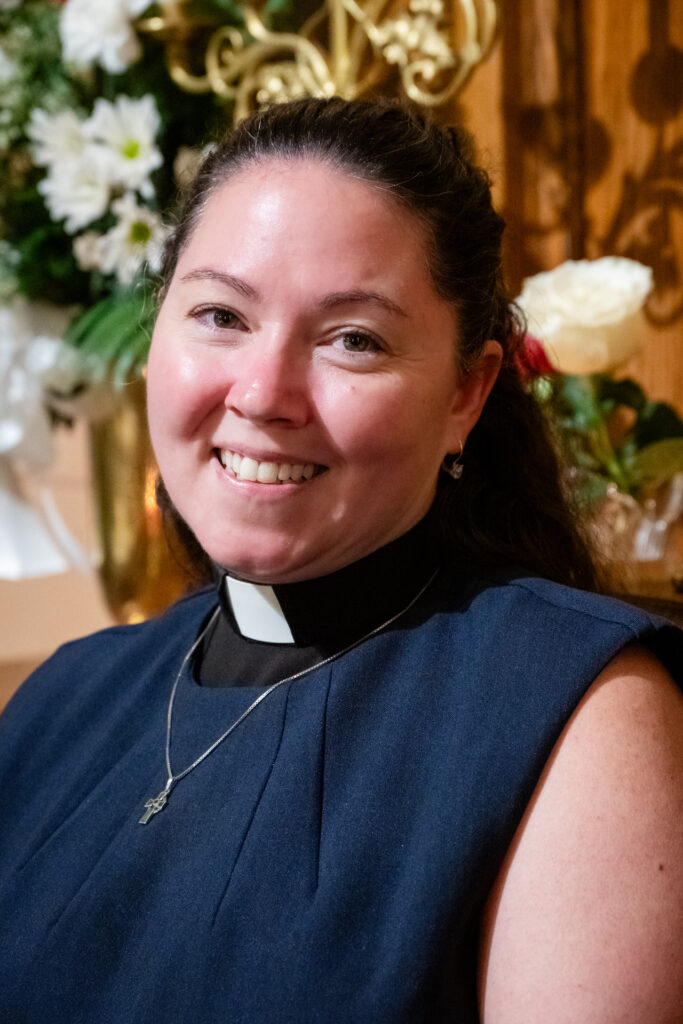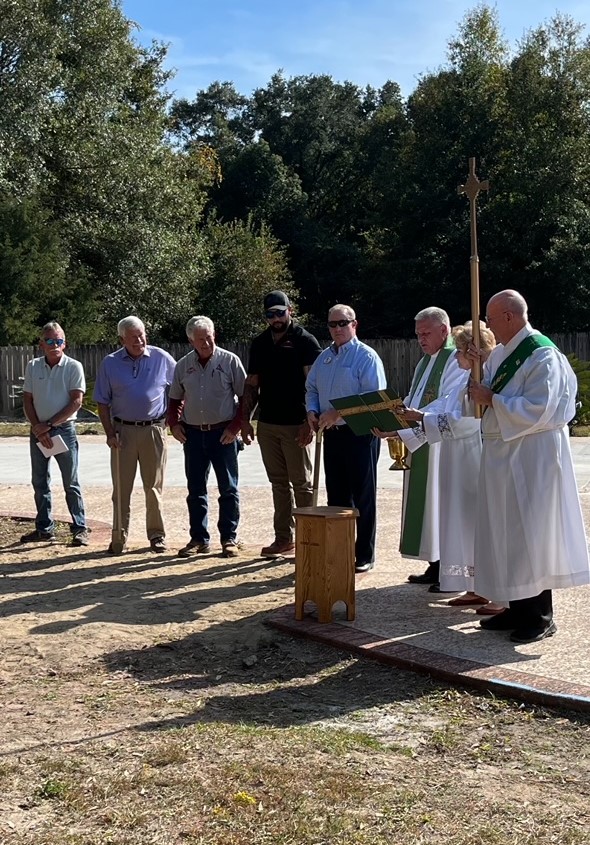I am very grateful for all the people who expressed deep concern over the movement I described in my April letter from the director to “cancel” the Gospel of John and remove John 18-19 from the lectionary readings for Holy Week, because of the claim that they foster anti-Semitism. A link to that letter can be found here.
In that same article I mentioned an even deeper concern – a movement not just to cancel the passion narrative in John, but to “cancel” the passion. There are many within the ELCA and other liberal/progressive, mainline denominations who reject the teaching that Jesus died for our sins. Instead they make Good Friday into the supreme example of Jesus’ bold political protest against the Roman empire, even unto death. And now we need to join in the work of dismantling empires and all other oppressive, political and social power structures.
One pastor wrote, “Empire killed Jesus for being a good rabbi, telling the truth, and therefore was a threat to the power structure.” Unfortunately, many agree.
Another pastor offers the following rewrite of two verses of the hymn, “O Sacred Head Now Wounded.”
Verse 2 –
What you, dear Jesus, suffered casts light upon our way,
We see the cost of loving and living for the day
When all God’s children flourish in justice and in peace,
When hungry mouths will be fed and warring ways will cease.
Verse 3 –
What language shall I borrow to thank you, dearest friend;
For this your selfless living, your love that did not bend?
May my life bless all people, may my love bring you praise,
That all might share God’s blessing, that all would know God’s grace.
According to this approach, I do not need a Savior to die in my place, forgive my sins, break the power of sin, and defeat the great enemy death. Rather I just need to be inspired and motivated to join in the effort to oppose all oppressive power structures.
But the Scriptures clearly teach that Jesus died for our sins.
In 1 Corinthians 15: 3-4 the apostle Paul emphatically states, “For I handed on to you as of first importance what I in turn had received that Christ died for our sins in accordance with the scriptures, and that he was buried, and that he was raised on the third day.” Paul clearly states that not only did Jesus die for our sins, but also that that teaching is “of first importance.”
Revelation 1: 5 – part of the second reading for the second Sunday of Easter – says, “To him who loves us and freed us from our sins by his blood.” First John 2: 2 describes Jesus as “the atoning sacrifice for our sins.” In John 1: 29 John the Baptist calls Jesus “the Lamb of God who takes away the sin of the world.” Is there any way to interpret that verse except to say that John is comparing Jesus with the Old Testament lambs upon whom the sins of the Israelites were laid and who died in their place? Paul also wrote to the Corinthians, “He made him to be sin who knew no sin, so that in him we might become the righteousness of God” (2 Corinthians 5: 21).
Now certainly there are many additional ways to describe the saving work of Jesus. He came to seek the lost (Luke 19: 10). He rejoices when He finds us and when we come home (Luke 15). He forgives, restores, and gives power for new living (John 8: 3-11).
I think one of the best passages for describing the rich variety of ways in which God has acted in Jesus can be found in the second chapter of Paul’s letter to the Colossians.
We were buried with him in baptism and raised with him through faith in the power of God (v. 12).
When we were dead in trespasses, God made us alive together with Christ, when he forgave us all our trespasses (v. 13).
He erased the record that stood against us with its legal demands (v. 14).
He set this aside by nailing it to the cross (v. 14).
He disarmed the rulers and authorities and triumphed over them (v. 15). (Based upon my reading of Ephesians 6, I am certain that Paul meant the spiritual powers of evil, not the political powers of Rome.)
He made us alive. The charges against us were dropped. The powers of evil were defeated. All this Jesus did through the cross and the resurrection. And that is a whole lot more than just calling on us to join with Him in His struggle against oppressive political and social power structures.
Those who reject the teaching that Jesus as God the Son died for our sins do so because they claim that that teaching makes God the Father into a cruel, vindictive child abuser.
I would reply that rejecting the teaching that Jesus died for our sins is missing the whole point of the seriousness of our sins and the depth of God’s love. Romans 6: 23 clearly says that “the wages of sin is death, but the free gift of God is eternal life in Jesus Christ our Lord.” It is not that the Father inflicted His wrath upon the Son in order to satisfy the anger that He felt towards us. Instead in giving His Son, God out of His great love for us gave Himself. He Himself paid the price for us. He satisfied His own requirements of justice. And He won the victory over death and the power and penalty of sin.
But how widespread is it in the ELCA to reject the teaching that Jesus died for our sins? I am not aware of any official doctrinal statement that has been approved by the ELCA Church Council, the Conference of Bishops, and/or a Churchwide Assembly which says, “We no longer believe that Jesus died for our sins.” But evidence of how widespread this belief is is abundant, and it seems to be growing. Here are some examples. I will begin with two more extreme examples.
1.
Illustrated Ministry is a curriculum company whose faith formation resources are popular among many in the mainline denominations, including the ELCA. Here is a link to an Easter resource.
This resource describes itself in this way. “This script outlines the way in which Jesus upended corrupt systems of power. Because of his power, popularity, and message, those systems retaliated.” It also says, “The good news of Jesus is often bad news for those who would like to accumulate power over others. But in the end, death was not the end of Jesus! We witness how Jesus lives. His message of love and justice gives us hope.” Did you get that? Jesus dies only because he “upended corrupt systems of power.” It is not that our sins need to be and are forgiven. Rather we are to go and do likewise.
2.
Daneen Akers, author of the highly popular progressive/liberal curriculum, “Holy Troublemakers,” is another person who believes and who spreads the belief that Jesus died because he upset the status quo. Here is a link to her article.
In this article she quotes another person as saying, “Jesus’ death was an interruption in his ministry, not the point of it. His message of love-your-enemies, the last-shall-be-first, and God’s-realm-is-for-all was deeply threatening to the status quo. So he was executed by the state as a cautionary tale for those who would follow his teachings. This is why Jesus died: His teachings upset powerful hierarchies and status quos, so he was executed by the state. The good news is that death and violence didn’t have the last word. It’s a love-ultimately-wins story.”
Many of the books in the picture in the article are published by Augsburg Fortress and/or are assigned or recommended as texts in ELCA seminaries.
But some might say, But that does not mean that anyone in a leadership position in the ELCA is saying anything like that. Is anything like that being said by anyone who would officially represent the ELCA? Here are three examples.
1.
Here is a blog post from the Rev. Dr. Kristin Johnston Largen, president of Wartburg Seminary, in which she condemns Isaiah 53 as “abusive” in theology.
2.
Here is a Huffington Post editorial by the Rev. Dr. David Lose, former president of the Lutheran Theological Seminary at Philadelphia and author of “Making Sense of the Cross” (published by Augsburg Fortress). Dr. Lose also condemns “Christ died for our sins” as abusive theology.
3.
Here is a video from the “Animate: Faith” curriculum, published by Augsburg Fortress, in which famed ELCA pastor and public theologian Nadia Bolz-Weber condemns the idea that Christ died for our sins as divine child abuse.
I do not hear what Drs. Largen and Lose, and Pastor Bolz-Weber are saying as going as far as Illustrated Ministry and Holy Troublemakers are going in totally reinterpreting the life, death, and ministry of Jesus, but I also know that things never stay where they are now. What is extreme now will soon become norm. There is nothing about the ELCA that would tell me that the ELCA is able to go “just a little bit off base” without soon being “very far off base.” Especially if more popular and accessible materials like those from Illustrated Ministry and Holy Troublemakers, and the content of books which are assigned as seminary texts, have a far greater influence on the average person and seminary students/future pastors than the writings of current and former seminary presidents.
God is not a cosmic child abuser. God is not wrathful and vengeful and anxious to take out on Jesus the anger He feels towards us. But the Scriptures are very clear in teaching that Jesus died for our sins. Any theology of what Jesus did on the cross must take that clear teaching into account in order to remain faithful to the Bible.
There are many things that these people are saying that we need to hear, such as –
- The cross is God’s greatest expression of love rather than an expression of God’s wrath.
- The cross shows that when humans do their worst, God can bring about His best.
- The cross shows that God is with us in all of our suffering.
- God is on the side of those who are the victims of the abuse of power, rather than on the side of the abusers of power.
From the cross Jesus cried, “It is finished.” He did say that those who wish to follow Him must take up their cross. But from the cross He did not cry, “Go and do likewise.”




















